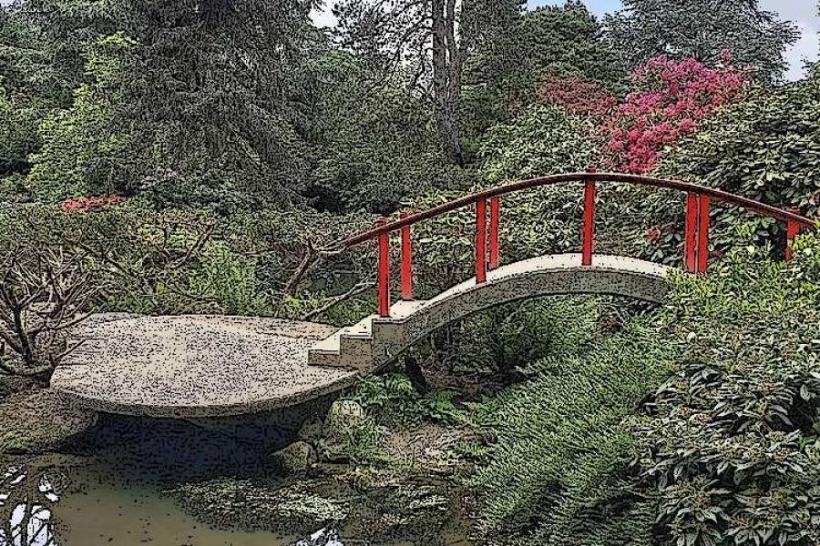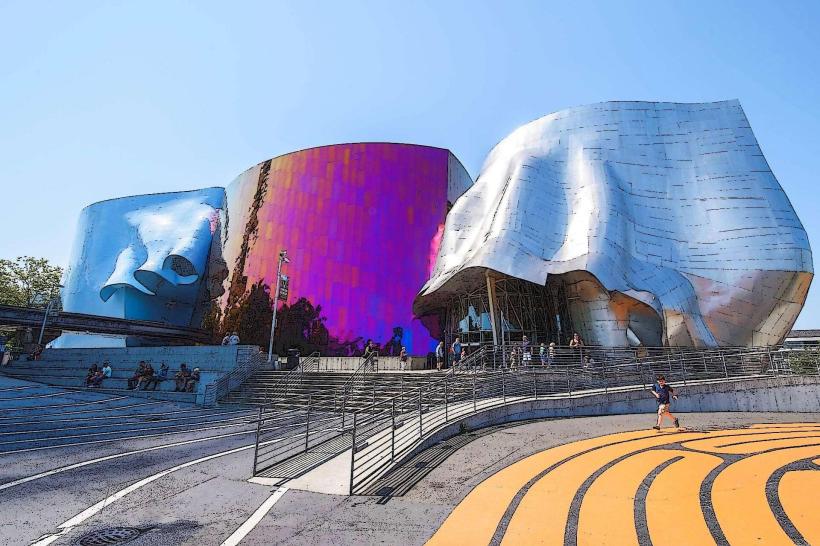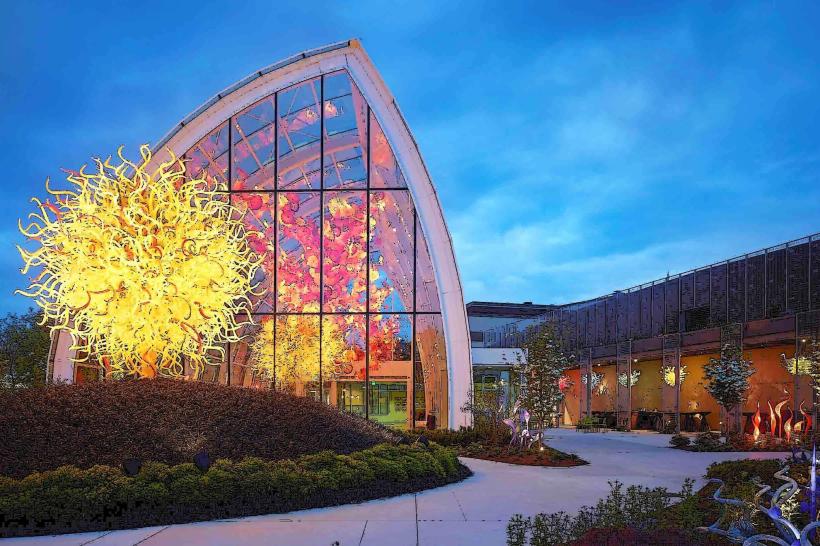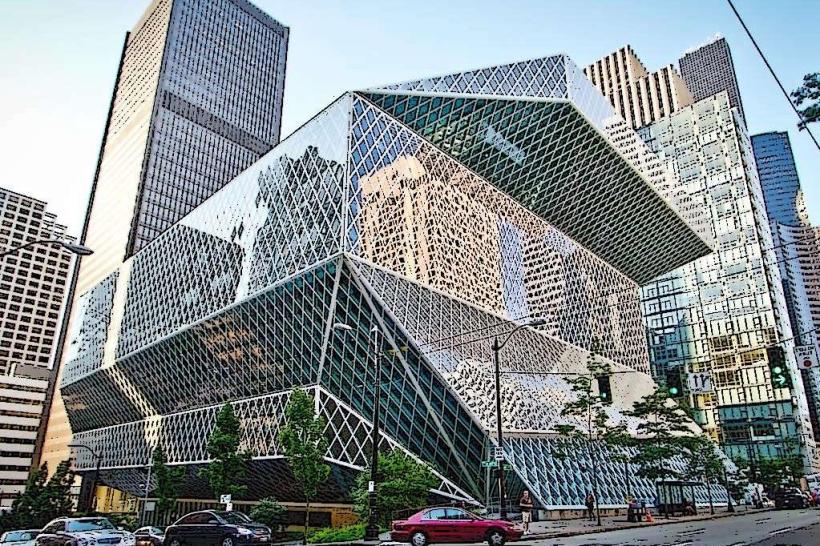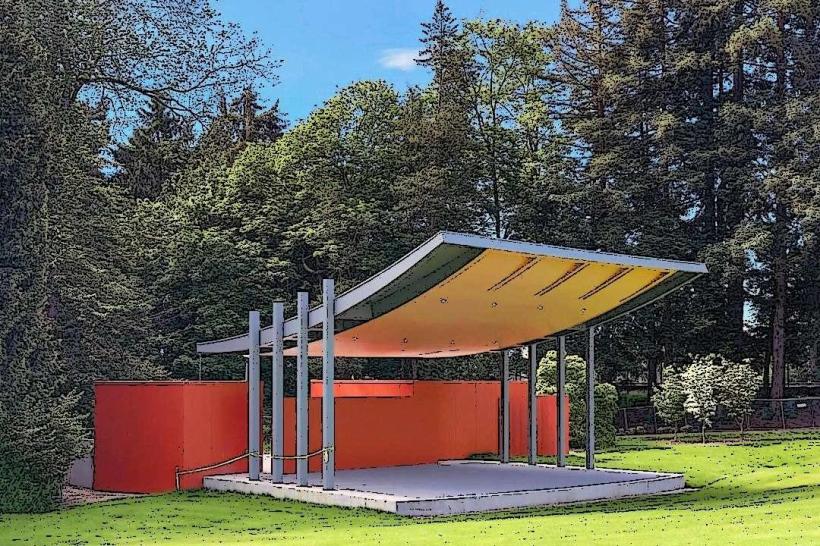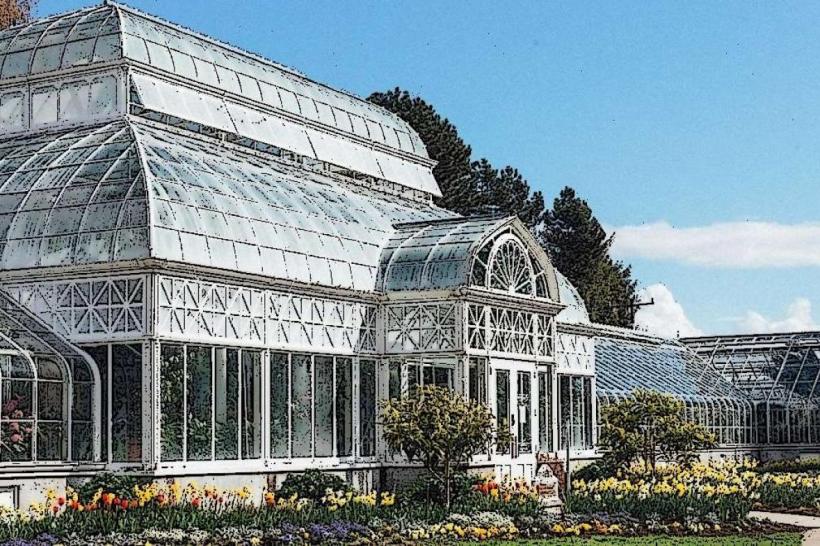Information
Landmark: Seattle Japanese GardenCity: Seattle
Country: USA Washington
Continent: North America
Seattle Japanese Garden, Seattle, USA Washington, North America
The Seattle Japanese Garden, nestled within Seattle’s sprawling Washington Park Arboretum, is a serene and meticulously crafted traditional Japanese garden that offers a tranquil retreat in the heart of the city. Renowned for its exquisite design, harmonious natural elements, and cultural significance, the garden is one of the finest examples of authentic Japanese garden artistry in the United States.
Historical Background and Development
The Seattle Japanese Garden was established in 1960, born out of a partnership between the City of Seattle, the University of Washington, and the Japanese American community. Its creation was a gesture of friendship and cultural exchange between Seattle and its sister city, Kobe, Japan. The design was overseen by Juki Iida, a master Japanese gardener trained in classical Japanese landscaping traditions, ensuring the garden adhered faithfully to traditional principles.
Over the decades, the garden has been carefully preserved and enhanced, maintaining its original vision while adapting to Seattle’s unique climate. It serves as both a botanical and cultural landmark, reflecting the deep appreciation for Japanese aesthetics and philosophy.
Design and Key Features
The garden spans approximately 3.5 acres and embodies the core elements of traditional Japanese garden design, emphasizing harmony, balance, and natural beauty. Its layout follows the “stroll garden” style (kaiyū-shiki teien), designed for visitors to walk along winding paths and experience carefully framed views that change with each turn.
Key Components:
Water Features: A central pond forms the heart of the garden, representing purity and life. The pond includes koi fish and is surrounded by carefully placed rocks and waterfalls that create gentle, soothing sounds, enhancing the meditative atmosphere.
Stone Lanterns and Bridges: Authentic stone lanterns (tōrō) and arched wooden bridges punctuate the landscape, blending function with symbolism. These elements serve as focal points and encourage mindful contemplation.
Flora: The garden is home to a variety of native Japanese plants such as azaleas, Japanese maples, camellias, and rhododendrons, as well as seasonal blooms like cherry blossoms in spring and colorful foliage in autumn. The selection of plants is intentional to reflect the changing seasons and evoke subtle beauty throughout the year.
Tea Garden: An intimate tea garden area with traditional stone basins and pathways allows visitors to appreciate the cultural practice of tea ceremonies and the importance of ritual in Japanese culture.
Viewing Pavilion: A small pavilion offers a peaceful spot to pause and take in the garden’s tranquility, often used for meditation or quiet reflection.
Cultural and Educational Role
The Seattle Japanese Garden functions not only as a place of natural beauty but also as a cultural center. It hosts events such as tea ceremonies, Japanese festivals, calligraphy workshops, and educational programs that promote understanding of Japanese culture and traditions.
These programs are often led by community groups, cultural experts, and volunteers, fostering cross-cultural dialogue and enriching Seattle’s diverse cultural landscape.
Visitor Experience
Visitors enter through a traditional-style gate that sets the tone for the peaceful experience ahead. The garden’s paths are designed for easy strolling, with benches and strategically placed viewpoints that invite guests to pause and absorb the natural surroundings.
The garden is open year-round, offering distinct seasonal experiences: delicate cherry blossoms in spring, lush greenery and vibrant hydrangeas in summer, fiery maples in fall, and serene, snow-dusted scenes in winter.
Admission is modest, with options for guided tours to deepen visitors’ appreciation of the garden’s history, design principles, and cultural context.
Conservation and Stewardship
Maintaining the garden’s authenticity and health requires ongoing horticultural care, expert pruning, seasonal planting, and careful water management. The garden is managed by Seattle Parks and Recreation in partnership with community organizations, volunteers, and Japanese cultural groups who share a commitment to its preservation.
Summary
The Seattle Japanese Garden stands as a peaceful sanctuary that combines natural beauty, traditional Japanese design, and cultural education. Its carefully crafted landscapes invite visitors to slow down, reflect, and connect with the subtle rhythms of nature and Japanese heritage. As a cherished part of Seattle’s cultural and environmental fabric, it offers a uniquely immersive experience for locals and visitors seeking tranquility and cultural enrichment in an urban setting.

